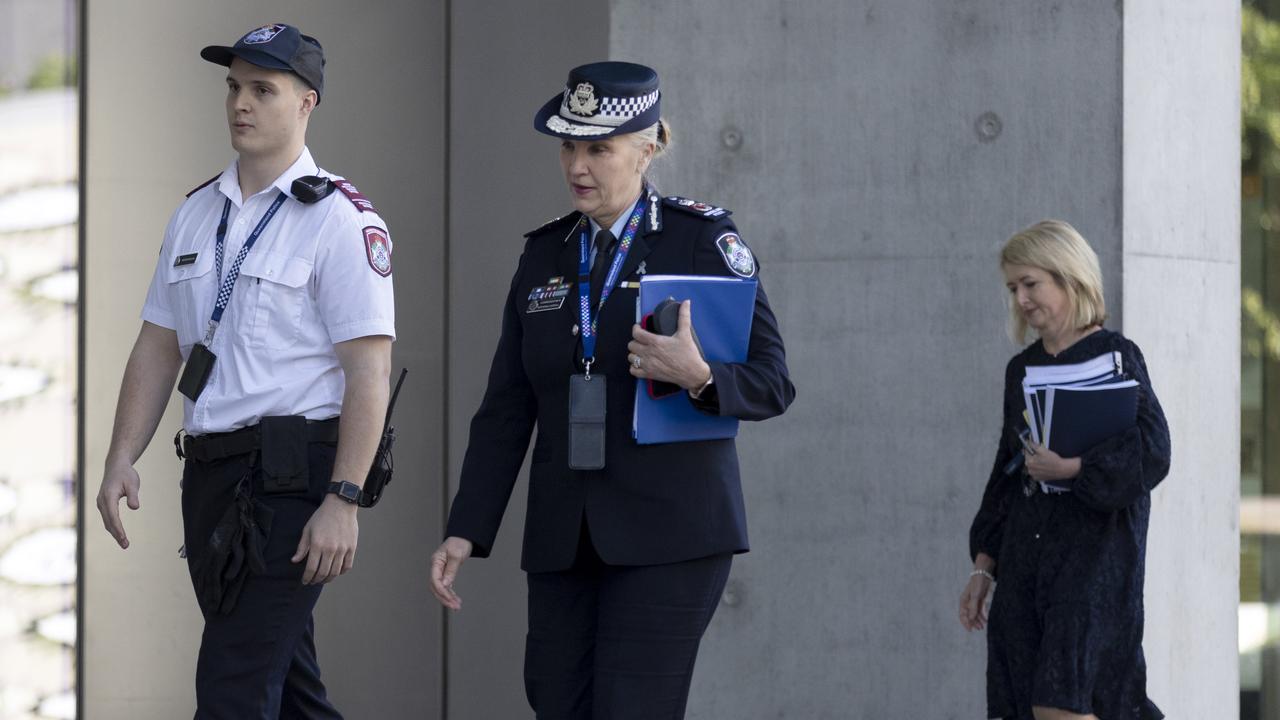Police Commissioner says only 15 to 20 staff had Covid-19 when she made vaccination direction
Queensland’s Police Commissioner Katarina Carroll has been asked to produce the evidence upon which she based her vaccination mandate for staff, in a civil action against it.

Police & Courts
Don't miss out on the headlines from Police & Courts. Followed categories will be added to My News.
Queensland’s top cop has responded to a legal backlash by some of her own officers and staff, as she was asked to explain to a court why she ordered mandatory Covid-19 vaccination for the police service.
Commissioner Katarina Carroll was grilled in Brisbane Supreme Court on Wednesday as part of a civil action brought by more than 60 police and 12 ambulance officers.
It is Queensland’s first legal challenge to mandatory Covid-19 vaccination.
She told the court that at the time she made the direction she knew of only 15 to 20 police service staff who had contracted Covid-19.
“It was not thousands then, definitely,’’ she said under cross-examination by Dominic Villa SC, for some of the police applicants.
She agreed that she had no knowledge then of how many police who had the virus had transmitted it to others, or about the number of police who had contracted it in the course of police duties.
Ms Carroll told the court she had considered a Human Rights Compatibility Assessment document, prepared by Crown law, before making her decision.
Mr Villa put to Ms Carroll that she had not received that document until after she had already made the decision requiring officers and staff to receive two doses of vaccine.
“I do not know the exact date I received the document. The document is a formality at the end result of a large amount of conversations,’’ Ms Carroll said.
Mr Villa put to Ms Carroll that prior to receiving the document she had not given any independent consideration about the extent to which her proposed direction would limit or impact on the human rights of police staff.
“I definitely did. I knew from the very beginning that it would limit their rights. Definitely,’’ she said.
Ms Carroll had claimed in her reasons for making the direction that there was a significant risk of police contracting or transmitting the virus.
She denied a suggestion by Mr Villa that what she had put in her statement of reasons for making the direction was “an exercise in pure speculation’’.
“You had no evidence before you to support the proposition that members of the Queensland Police Service were at a significantly increased risk of contracting or transmitting Covid-19,’’ Mr Villa put to Ms Carroll.
“We had very good evidence as to what had occurred across the world in other policing organisations,’’ she replied.
Mr Villa told Ms Carroll her “homework overnight’’ was to find material she relied on as evidence that police were at a significantly high risk of contracting the virus.
Ms Carroll said when she encouraged staff to get vaccinated it was “extraordinarily difficult’’ to get high vaccination rates within the police service.
She said she was aware that none of the police applicants before the court had been granted an exemption on the basis of conscientious beliefs against mandatory vaccination.
Ms Carroll’s cross-examination will continue on Friday.





